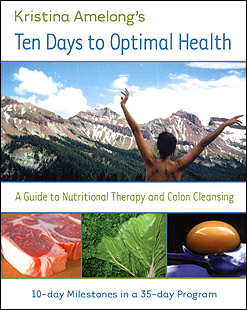Intermittent Fasting
Methods of Intermittent Fasting
What is the Best Time of Day to Fast?
Is Intermittent Fasting Safe?
Different types of fasting, including intermittent fasting, conducted due to lifestyle, religious practices, or availability of food, have been common in many parts of the world throughout human history.
According to Johns Hopkins neuroscientist Mark Mattson, Ph.D., during the hunting and gathering era (before humans learned to farm) our bodies evolved in response to periods of deprivation to be able to function efficiently without food for many hours, or even days. Because of this evolution, incorporating periods of fasting into our diets may provide numerous health benefits.

Over the past few years, intermittent fasting has grown in popularity as a health trend for those wanting to lose weight, improve metabolic health, improve blood pressure, reduce risk of diabetes, or improve overall health.
A number of recent studies suggest that IF can reduce the risk of cardiovascular disease, help to control hypertension, reduce oxidative stress, and help optimize the circadian rhythm.
According to Dr. Mattson, "Many things happen during intermittent fasting that can protect organs against chronic diseases like type 2 diabetes, heart disease, age-related neurodegenerative disorders, even inflammatory bowel disease and many cancers."
What Is Intermittent Fasting?
Intermittent fasting (IF) is a pattern of eating that includes both periods of fasting and periods of normal eating. IF specifies when you should eat, unlike traditional diets, which specify mostly what you should eat.
However, what you eat is still very important while intermittent fasting. I recommend following the dietary guidelines laid out in my Ten Days to Optimal Health program alongside your intermittent fasting program.

Methods of Intermittent Fasting
There are several different ways to do intermittent fasting. Most people find that some methods may work better for their lifestyle and body than others. It's important to listen to your body during intermittent fasting, and approach it in a manner that feels best for you!
The three most common types of intermittent fasting are:
- The 16/8 Method: This method involves restricting your daily eating window to 8 hours per 24-hour cycle, such as noon to 8 pm, and fasting for the other 16 hours of the cycle. This is one of the most popular methods, since many people naturally skip breakfast in the morning, so transitioning to this type of IF is fairly easy and effective for many people.
- The 5:2 Method: With this method, you eat normally for 5 days of the week, and then consume a limited amount of food, only 500-600 calories, on two non-consecutive days of your choice. For example, you might eat less on Monday and Thursday, but eat normally every other day.
- The Eat-Stop-Eat Method: This method involves fasting for a full 24 hours 1 to 2 times per week. While this method works well for some people, others find that eating nothing for a full 24 hours can be difficult and uncomfortable.
What is the Best Time of Day to Fast?
Our metabolism has evolved to be in sync with the circadian rhythm, which means our bodies function optimally when we eat during the day when we're awake and active, and don't eat at night.
This is why for the 16/8 Method, it is commonly recommended that your eating period be from approximately noon to 8 pm, 11 am to 7 pm, or 10 am to 6 pm, for example, to keep the majority of your meals within the daytime. The best time of day to fast, however, may vary depending on your lifestyle and work and sleep schedules.
Intermittent Fasting
Kristina Amelong, CCT, CNC, discusses different methods of intermittent fasting, the benefits that can accompany fasting, and how to fast safely.

Fasting with the Vit-Ra-Tox Kit and Colon Cleansing
In my book, Ten Days to Optimal Health, I detail a 5-day fasting program, done alongside colon cleansing and using the Vit-Ra-Tox Kit. I recommend doing this program 3-6 times per year to detoxify the body.
NOTE: Due to manufacturer supply issues, the Vit-Ra-Tox Kit may be intermittently out of stock. As an alternative for your home detox program, Kristina recommends using our OHN 5-Day Fasting & Detox Kit.
It's important to precede a fast of this length with a cleansing diet to reduce the detox effects on your body. Don't go directly from eating high levels of refined sugars and processed foods straight into this fast.
Please note that this is not a fast in which you are only drinking water during the fasting period, like some of the intermittent fasting methods mentioned above. This would be unsafe for a fast of this length of time. Instead, I recommend a diet of nutritious liquids and supplements that nourish your body and support the detoxification process.
Recommended nutritional liquids include raw milk, bone broth, vegetable and fruit juices, beet kvass, kombucha, kefir, and herbal teas.
The Vit-Ra-Tox Colon Cleanse Kit is an essential component of this fasting program, without which you will not be able to fully detoxify your body. The iron and bentonite clay in this kit both work to adhere to the toxins and bacterial waste that are leaving your body so that they aren't reabsorbed by the colon. The other supplements in this kit provide your body with extra nutrients to help boost your immune system while you are fasting.

The final part of this 5-day fasting program is doing a daily enema series. This 3-step series helps clean all toxins from the colon, which is extremely important when you're detoxing/fasting. Do the enema series daily throughout this 5-day program.
▶︎ BUY ENEMA SUPPLIES.
How To End Your Fast
One of the most important aspects of a fast is how you end it. The worst thing you can do is give your digestive tract a great cleanse and then eat a large amount of unhealthy, hard-to-digest foods immediately afterward. When ending this nutritious liquids fast, always resume eating by slowly adding small amounts of easy-to-digest foods back into your diet while continuing to follow the Ten Days to Optimal Health diet as closely as you are able to.
▶︎ For more information on this fasting program, please consult my book, Ten Days to Optimal Health.
Is Intermittent Fasting Safe?
For many people, intermittent fasting (IF) is a safe practice which works well to help maintain long-term health goals. However, intermittent fasting is not recommended for everyone. IF is not recommended for those with a history of eating disorders, those under the age of 18, pregnant or breastfeeding women, those with diabetes or blood sugar problems, or those with other underlying health conditions.
It's important to remember that intermittent fasting has different effects on different people. I recommend talking to your doctor if you experience unusual headaches, nausea, mental or emotional stress, or other symptoms after you start IF.
Periods of fasting longer than 24 hours are not necessarily better for you, and could potentially be dangerous for your health. Additionally, going too long without eating could actually encourage your body to start storing more fat in response to starvation, which is contrary to some goals of intermittent fasting. Be sure to carefully monitor your body while you are fasting, and adjust or stop your program if it makes you feel bad or sick in any way.
Summary
Intermittent fasting can support your health in many ways, beyond simply helping you lose weight. Studies have shown that IF can help support heart health, lower one's risk of diabetes and neurodegenerative diseases, reduce oxidative stress and inflammation, and support the body's cellular repair processes by helping to optimize the circadian rhythm and metabolic functions. These health benefits are potentially enormous for many people.
Remember that there are multiple ways to do intermittent fasting and that it's important to choose the method you feel will work best for your body and lifestyle. With the right program, intermittent fasting can be a great tool to help optimize your health alongside a good diet and colon cleansing.
Intermittent fasting is not recommended for everyone, including those with a history of eating disorders, those under the age of 18, pregnant or breastfeeding women, those with diabetes or blood sugar problems, or those with other underlying health conditions. Please consult with your doctor if you are unsure whether intermittent fasting is right for you.
▶︎ HOW TO TAKE AN ENEMA SERIES.
DISCLAIMER: This material is presented for informational purposes only and is not a substitute for medical advice, diagnosis, or prescribing from a licensed healthcare professional. We make no claim or guarantee for cure or relief of any specific symptom, medical condition, or disease when using any of the products or protocols referenced here. Consult with a licensed healthcare professional before altering or discontinuing any current medications, treatment, or care, or starting any diet, exercise, cleansing, or supplementation program, or if you have or suspect you might have a health condition that requires medical attention.
By Kristina Amelong, CCT, CNC
I-ACT-Certified Colon Hydrotherapist
Certified Nutritional Consultant